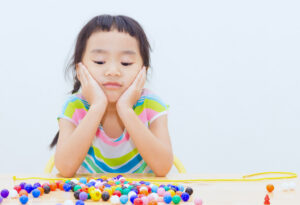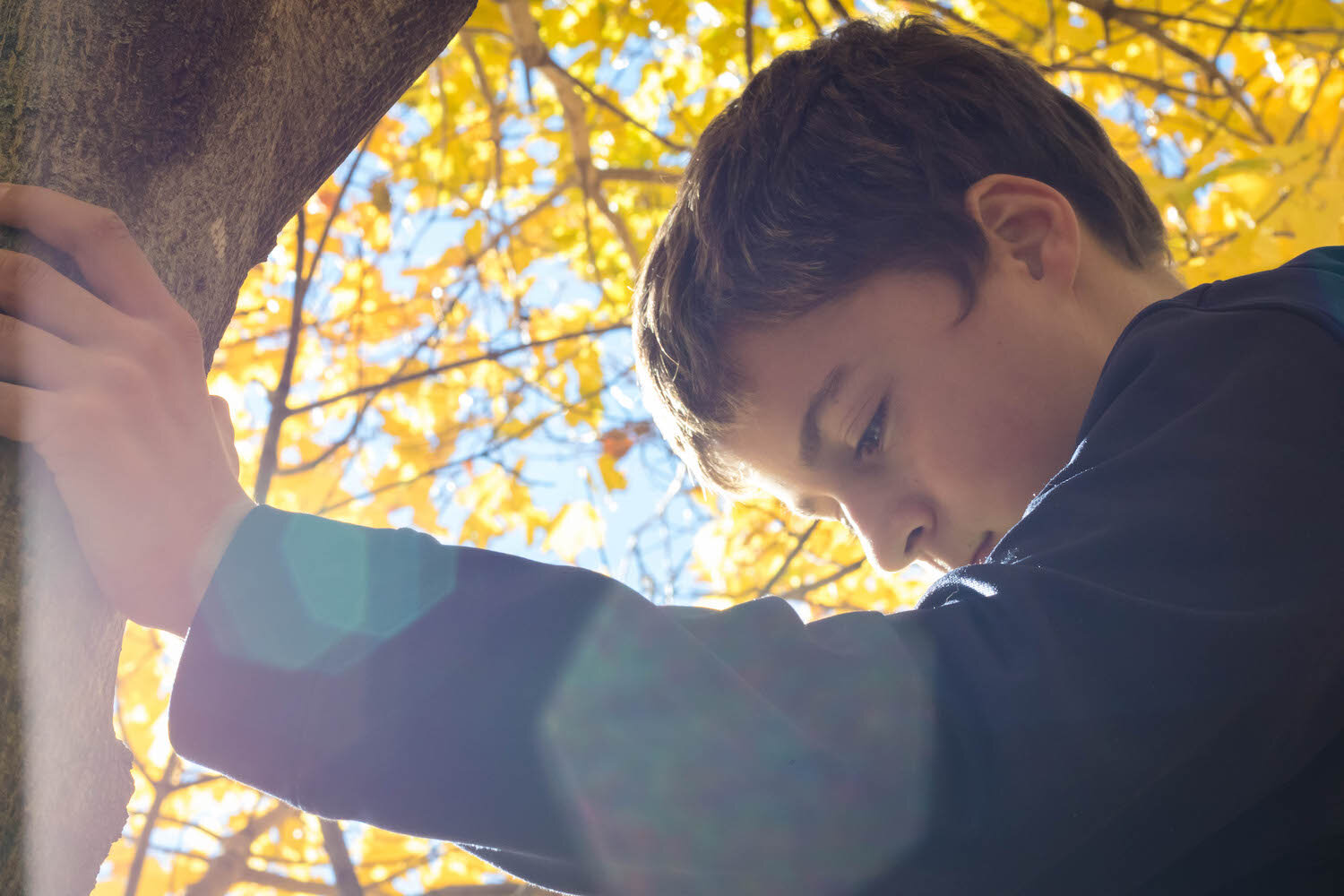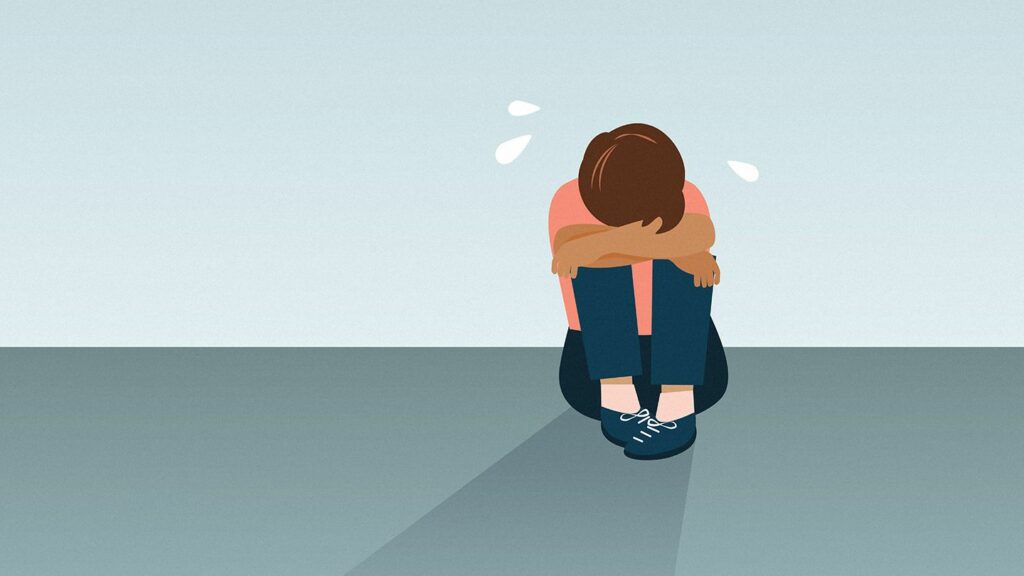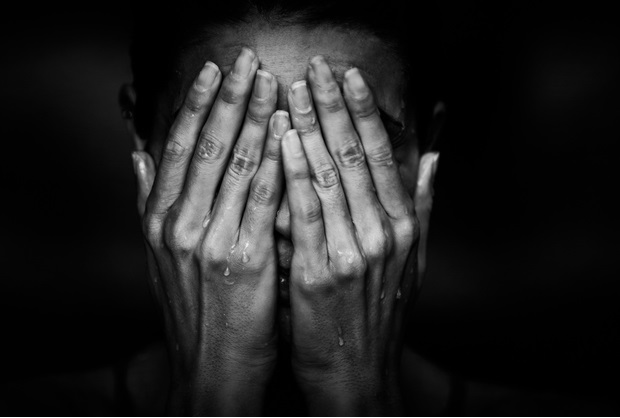When most people think of OCD, they imagine a grown adult with intrusive thoughts and compulsive behaviors. However, OCD can also affect children and teenagers. Pediatric OCD is a serious condition that can cause immense distress for young people and their families. In this blog post, we will discuss the symptoms of pediatric OCD, how to get help, and ways to support your child or teen.
Contents
What Is Pediatric OCD?
 Pediatric OCD is a type of anxiety disorder that can occur in children and adolescents. It is characterized by obsessions, or repetitive, unwanted thoughts, images, or urges, that cause distress and/or compulsions, or repetitive behaviors or mental acts that the individual feels they must do to reduce the anxiety caused by the obsessions.
Pediatric OCD is a type of anxiety disorder that can occur in children and adolescents. It is characterized by obsessions, or repetitive, unwanted thoughts, images, or urges, that cause distress and/or compulsions, or repetitive behaviors or mental acts that the individual feels they must do to reduce the anxiety caused by the obsessions.
Obsessions can include fears of contamination or illness, excessive worry about harm coming to oneself or others, unwanted sexual or aggressive thoughts, need for symmetry or exactness, and intrusive religious doubts or thoughts. Compulsions may include excessive hand-washing and cleaning; repeated checking of things such as locks, stoves, and taps; ordering and arranging objects; hoarding; compulsive counting; repeating actions over and over; and avoidance of situations that may trigger obsessions, such as dirt or germs.
Pediatric OCD can have a significant impact on a child or adolescent’s life. It can interfere with school, friendships, and family relationships. It can cause the individual to avoid activities they once enjoyed and can lead to social isolation. In severe cases, it can be disabling.
There may be a genetic component to pediatric OCD, as it tends to run in families. There may also be a link between OCD and other psychiatric disorders, such as anxiety, depression, and Tourette syndrome.
Treatment for pediatric OCD usually involves a combination of medication and cognitive-behavioral therapy (CBT). CBT is a type of therapy that helps individuals learn to recognize and manage their thoughts and behaviors. Medication can help reduce the severity of symptoms. In severe cases, hospitalization may be necessary.
Signs and Symptoms of Pediatric OCD

There are many signs and symptoms of pediatric OCD, and they vary from child to child. However, there are some common ones that parents should be aware of. These include:
Excessive hand-washing or showering
This one sign of pediatric OCD is often one of the first ones that parents notice. The child may wash their hands several times a day, or they may spend an excessive amount of time in the shower. There may also be many “rules” associated with hand-washing, such as using a certain number of pumps of soap or washing for a certain amount of time.
Avoidance of dirt or germs
A child with pediatric OCD may avoid activities that they once enjoyed because they are afraid of getting dirty or coming into contact with germs. They may also avoid places where they think there might be dirt or germs, such as public restrooms. When there may be unavoidable contact with dirt or germs, the child may wash excessively or have a strong need to shower immediately afterward.
Compulsive checking
A child with pediatric OCD may feel the need to check things repeatedly, such as locks, stoves, and taps. They may also check on people or objects to make sure they are safe. For example, a child may check on their parents to make sure they are still alive or check the locks on the doors several times before going to bed.
Repeating actions
A child with pediatric OCD may feel the need to repeat actions over and over again. This could include activities such as tapping, blinking, or touching objects in a certain way. It could also include saying certain words or phrases multiple times. There may also be many “rules” associated with the actions, such as doing them a certain number of times or in a specific order.
Hoarding
A child with pediatric OCD may hoard objects, even if they are of no value. They may have a strong need to keep these objects and may feel very anxious if they are not able to do so. Sometimes there may also be a need to keep the hoard in a specific order or arrangement.
Compulsive counting
A child with pediatric OCD may feel the need to count things repetitively. This could include objects, steps, or even people. They may also have rules about how the counting must be done, such as starting over if they make a mistake or skipping certain numbers.
Intrusive thoughts
A child with pediatric OCD may have intrusive and unwanted thoughts that are disturbing or upsetting. These could be sexual, aggressive, or religious in nature. The child may try to suppress these thoughts but find it difficult to do so. Sometimes it can also cause a great deal of anxiety and distress.
The feeling of being dirty or contaminated
A child with pediatric OCD may feel as though they are dirty or contaminated, even if they have just washed. They may also have a strong fear of contracting an illness or disease. This can lead to avoidance of places or activities where there is potential for contact with germs, such as public restrooms.
Constant doubt
A child with pediatric OCD may have constant doubts and may second-guess themselves a lot. For example, they may wonder if they locked the door or turned off the stove. This can lead to compulsive checking of these things.
Excessive need for perfectionism
A child with pediatric OCD may be a perfectionist and have very high standards for themselves. They may feel that everything must be done perfectly and may get upset if it’s not. This could also lead to repetitive actions or compulsions as the child tries to achieve perfection.
What Causes Pediatric OCD?

The exact cause of pediatric OCD is unknown, but there are some risk factors that have been associated with it. These include:
Genetics
Genetics is one of the most significant risk factors for developing OCD. If a parent or a close family member has OCD, there is a greater chance that the child will develop it as well. Sometimes there may be many family members with OCD, suggesting that there may be a genetic link.
These genetics also give it a strong tie to mental illness. Anxiety, depression, and substance abuse are often seen in families with a history of OCD.
Brain structure
There are differences in the brain structure of people with OCD compared to those without it. One difference is in the size of the caudate nucleus, which is responsible for filtering out irrelevant information. People with OCD tend to have a smaller caudate nucleus, which means they may be bombarded with too much information and find it hard to filter out what’s not important.
This difference in brain structure may also be due to changes in neurotransmitters, such as serotonin and dopamine. These chemicals play an important role in mood and emotions, and imbalances of them have been linked to OCD.
Environmental factors
There are also some environmental factors that may increase the risk of developing OCD. These include:
Trauma
If a child experiences trauma, such as abuse, neglect, or a natural disaster, it can increase the risk of developing OCD. This is especially true if the trauma is severe and/or happens at a young age. It may also have something to do with the changes in brain structure that occur after trauma. Sometimes trauma can trigger OCD in people who are already at risk for the disorder.
Stressful life events
Other stressful life events, such as the death of a loved one, divorce, or moving to a new house, can also increase the risk of developing OCD. This is especially true if the child is already struggling with anxiety or another mental health condition. Sometimes there may be no specific event that triggers OCD, but rather it can be a combination of several stressors.
Abuse
Abuse is another significant risk factor for developing OCD. Children who are abused, whether physically, sexually, or emotionally, are more likely to develop the disorder. This is likely due to the fact that abuse can cause changes in brain structure and function, as well as imbalances in neurotransmitters. It can also lead to other mental health problems, such as anxiety and depression, which may increase the risk of OCD.
Skewed views
Certain skewed views, such as thinking that germs are dangerous and must be avoided at all costs, can also increase the risk of developing OCD. This is because these views can lead to compulsions, such as excessive hand-washing, which may then become obsessions. It can also be difficult to change these views once they’re established.
Cultural factors
There are also some cultural factors that may increase the risk of developing OCD. For example, in cultures where there is a lot of emphasis on cleanliness and perfection, such as certain Asian cultures, the rates of OCD tend to be higher. This may be due to the fact that these cultures place a high value on these things, which can lead to compulsions and obsessions related to them.
Streptococcal infection
In some cases, OCD may be triggered by a streptococcal infection, such as strep throat. This is more likely to happen in children than adults. The exact link between strep infections and OCD is not clear, but it’s thought that the immune response to the infection may play a role. It also seems that this link is more likely in children who have a family history of OCD or Tourette’s syndrome.
Negative Impacts of Pediatric OCD

There are many potential negative impacts of pediatric OCD. Some children with the disorder may have difficulty functioning at home, at school, and in social situations. The obsessions and compulsions associated with the disorder can interfere with normal activities and routines. In some cases, children with OCD may become withdrawn and isolate themselves from others.
Some of these impacts are:
Impacts Education
Pediatric OCD can have a significant impact on a child’s education. The obsessions and compulsions associated with the disorder can interfere with schoolwork, and may even cause children to miss school entirely. In some cases, children with OCD may be teased or bullied by classmates because of their disorder. This can lead to social isolation and further difficulties in school.
Impacts on Social Life
The social life of a child with OCD can also be negatively affected. The obsessions and compulsions associated with the disorder can make it difficult to interact with others and may cause children to avoid social situations entirely. This can lead to loneliness and isolation.
In some cases, children with OCD may be ridiculed or teased by classmates because of their disorder. This can further damage their social life and cause them to withdraw even more.
Impacts on Family Life
The family life of a child with OCD can also be significantly affected. The obsessions and compulsions associated with the disorder can take up a lot of time and energy, which can be draining for families. In some cases, children with OCD may become withdrawn and isolate themselves from their families. This can lead to further difficulties within the family unit.
Impacts on Daily Activities
Sometimes there are many impacts of pediatric OCD on a child’s daily activities. The obsessions and compulsions associated with the disorder can interfere with normal activities and routines. In some cases, children with OCD may become so consumed by their disorder that they are unable to participate in usual activities or hobbies.
Impacts on Mental Health
There are also many potential impacts of pediatric OCD on a child’s mental health. The obsessions and compulsions associated with the disorder can be very distressing and may cause anxiety or depression. In some cases, children with OCD may attempt to harm themselves or engage in self-destructive behaviors.
All of these impacts can lead to a decrease in the quality of life for both the child and their family. It’s important to seek help if you think your child may be suffering from OCD. Early diagnosis and treatment are key to managing the disorder and preventing it from having a negative impact on your child’s life.
Diagnosis of Pediatric OCD
Diagnosing pediatric OCD can be difficult, as the disorder can present differently in children than adults. For example, a child with OCD may not be aware that their obsessions and compulsions are excessive or unreasonable. In addition, children may have difficulty articulating their thoughts and experiences, which can make diagnosis challenging.
There are several assessment tools that mental health professionals can use to diagnose pediatric OCD. The most common is the Diagnostic and Statistical Manual of Mental Disorders (DSM-IV), which is published by the American Psychiatric Association. The DSM-IV lists specific criteria for diagnosing OCD, including both obsessions and compulsions.
Another assessment tool that may be used is the Yale-Brown Obsessive-Compulsive Scale (Y-BOCS). The Y-BOCS is a questionnaire that assesses the severity of OCD symptoms. It is often used in research studies, but can also be helpful in clinical practice.
If you are concerned that your child may have OCD, it is important to seek professional help. A mental health professional with experience in treating pediatric OCD can conduct a comprehensive assessment and make an accurate diagnosis. Treatment for pediatric OCD typically includes cognitive-behavioral therapy (CBT) and/or medication. With appropriate treatment, most children with OCD improve significantly.
Treatment of Pediatric OCD

Treating Pediatric OCD is not easy, and it takes a lot of hard work from both the child and the parents. However, with proper treatment, most children with OCD can learn to control their obsessions and compulsions and live normal lives.
Medications
Medications are one method that can be used to treat pediatric OCD. The most commonly prescribed medications for OCD are selective serotonin reuptake inhibitors (SSRIs). SSRIs work by increasing levels of serotonin in the brain, which can help to reduce OCD symptoms. These medications have benefits as well as some negative side effects, so it is important to discuss the risks and benefits with your child’s psychiatrist before starting any medication.
Cognitive-Behavioral Therapy
CBT is a type of psychotherapy that has been shown to be effective in treating OCD. CBT typically involves helping the child to identify and challenge their negative thoughts and beliefs about their obsessions and compulsions. In addition, children are taught coping and problem-solving skills to help them deal with their OCD symptoms. CBT usually requires weekly sessions for several months but can be shorter or longer depending on the individual child’s needs.
Dialectical Behavioral Therapy
Dialectical behavioral therapy (DBT) is a type of cognitive-behavioral therapy that was originally developed to treat borderline personality disorder. DBT has been found to be effective in treating a range of mental health disorders, including OCD.
DBT typically involves weekly individual therapy sessions and group skills training sessions. During individual therapy, you’ll work with your therapist to identify unhealthy thoughts and behavioral patterns. You’ll also learn how to develop more effective coping and problem-solving skills. Group skills training sessions involve learning and practicing new skills with other people who are dealing with similar issues.
Family Therapy
Another treatment approach that may be helpful for children and adolescents with OCD is family therapy. Family therapy can help to improve communication and problem-solving skills within the family, as well as provide support and education about OCD. In this therapeutic setting, it’s also possible to address any underlying family conflict that may be contributing to the child’s OCD.
Exposure and Response Prevention Therapy
Exposure and response prevention therapy (ERP) is a type of cognitive-behavioral therapy that’s specifically designed for treating OCD. This treatment approach involves gradually exposing yourself to the things that trigger your OCD anxiety, while simultaneously learning to resist the urge to perform compulsive behaviors.
ERP can be done with or without medication. If you decide to go ahead with ERP without medication, it’s important to work with a therapist who is experienced in this treatment approach. ERP can be a very effective treatment for OCD, but it can also be challenging. It often takes several months of weekly therapy sessions to see results.
Hospitalization
In some cases, children with OCD may need to be hospitalized. This is typically only necessary if the child is in danger of harming themselves or others, or if they are not able to eat or drink due to their compulsions. Hospitalization can provide a safe environment for the child while they receive intensive treatment for their OCD.
Parent Training/Education
Parent training or education programs can also be helpful in treating pediatric OCD. These programs typically involve teaching parents about OCD and how to best support their child in treatment. In addition, parents learn how to manage their own stress and respond effectively to their child’s obsessions and compulsions. There may also be many online courses or books available to help parents learn more about OCD and how to help their children.
Support Groups
Support groups can provide information and support for families dealing with pediatric OCD. These groups are typically led by mental health professionals and offer a safe place for families to share their experiences and connect with others who understand what they are going through. These support groups are also a great way to learn more about OCD and treatment options.
OCD can be a very difficult disorder to live with, but there is hope. With proper diagnosis and treatment, most children with OCD can learn to control their symptoms and lead happy productive lives. If you are concerned that your child may have OCD, please seek professional help.
How To Help Someone With Pediatric OCD?
 Helping a child with OCD can be difficult, but there are some things you can do to ease their anxiety and help them cope with their obsessions and compulsions.
Helping a child with OCD can be difficult, but there are some things you can do to ease their anxiety and help them cope with their obsessions and compulsions.
Talk To That Parent
You should always talk to the parent of a child with OCD before taking any action. The parent will likely be very grateful for your help and will be able to provide you with guidance on how to best support their child. Also, there may be many things you can do to help that the parent is not aware of.
Educate Yourself About OCD
It’s important to educate yourself about OCD so that you can better understand what the child is going through. There are many excellent resources available online and in libraries. In addition, there are many support groups for families dealing with pediatric OCD. These groups can provide valuable information and support.
Encourage The Child To Seek Help
If the child is displaying symptoms of OCD, encourage them to seek professional help. This may be difficult for the child, but it’s important to get them the help they need as soon as possible. Early intervention is key in treating OCD.
Be Supportive
Once the child has started treatment, it’s important to be supportive. This may mean attending therapy sessions with the child or helping them to stick to their treatment plan. It’s also important to be patient as treatment can take some time to work. Being supportive will go a long way in helping the child to recover from OCD.
Be Patient With Them
You should always be patient with the child. OCD can be a very difficult disorder to deal with and it will take time for the child to learn how to control their symptoms. It’s important to be supportive and understanding during this time. Patience is one of the most important things you can give to a child with OCD.
If you are concerned that your child may have OCD, please seek professional help. There are many resources available to families dealing with pediatric OCD and with early intervention, most children can learn to control their symptoms and lead happy productive lives.
Conclusion
Pediatrics OCD can become a serious problem if it is not treated properly. If you think your child may have OCD, it is important to talk to your pediatrician about it. Treatment for OCD usually includes cognitive-behavioral therapy and medication. With proper treatment, most children with OCD can learn to control their obsessions and compulsions and lead normal happy lives.
There may be many things in your child’s life that are causing him or her stress. As a parent, you can help by teaching your child how to cope with stress in healthy ways. You can also model healthy coping mechanisms for your child. Helping your child to develop a support system for family and friends can also be very beneficial. If you think your child may be suffering from OCD, do not hesitate to seek professional help. With proper treatment, your child can learn to control his or her obsessions and compulsions and lead a normal happy life.
If you’re struggling with mental health problems, know that you’re not alone. MantraCare is here to help you with these mental health disorders. We offer group therapy, self-help strategies, and professional help. Contact us today to learn more about how we can help you! Helping someone with these disorders can be difficult, but it is important to encourage professional treatment, listen and be supportive, and encourage healthy coping mechanisms. MantraCare is here to help you every step of the way. You can also book a therapy or download our free Android or iOS app. We provide effective online OCD Treatment.


